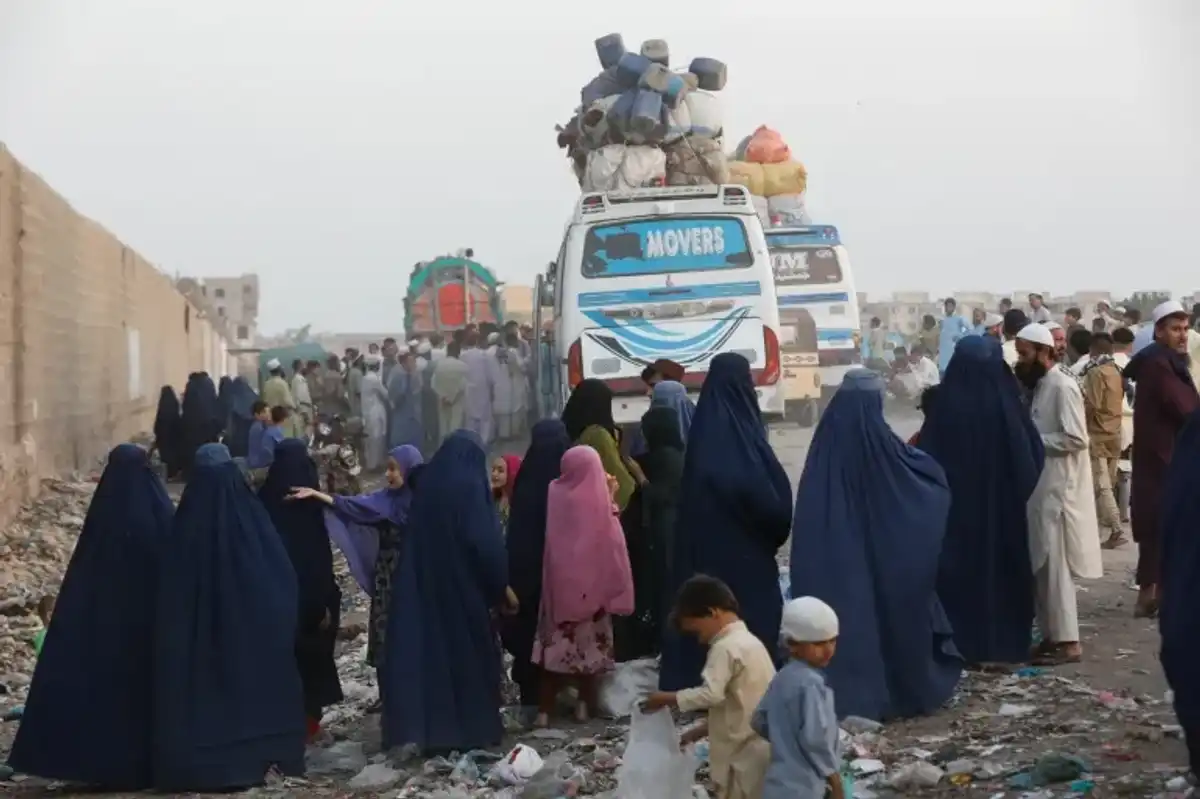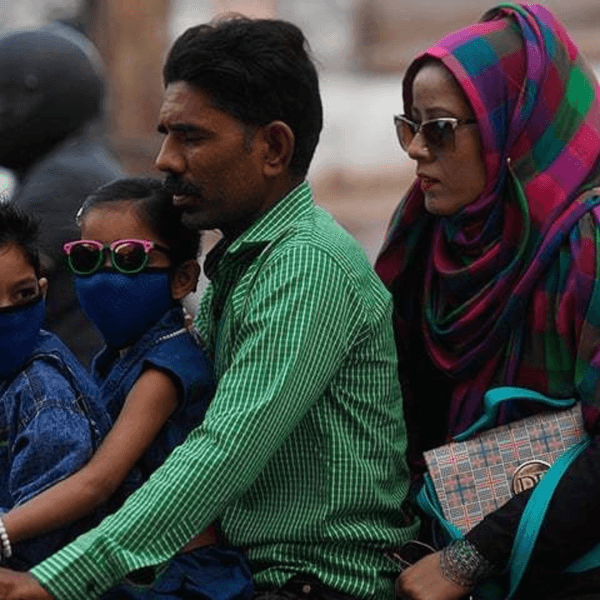Eid in uncertainty: Afghan families in Pakistan face deportation deadline
Families torn apart as some members detained while others remain free despite holding identical legal status

Asma Kundi
Producer, Islamabad
Asma Kundi is a multimedia broadcast journalist with an experience of almost 15 years. Served national and international media industry as reporter, producer and news editor.

Afghan people gather to board buses as they prepare to return home, at a bus stop in Karachi.
Reuters
Pakistan determined to deport all undocumented Afghan nationals and Afghan Citizen Card holders
Officials coordinating efforts to ensure implementation of repatriation process
Foreign Office reaffirms Pakistan's policy on Afghan refugee repatriation unchanged
This Eid, fear overshadows joy for thousands of Afghan refugees in Pakistan as March 31 marks both the festival and their final deadline for deportation.
Many plead for reconsideration, urging authorities to allow them to stay in the only home they have ever known. However, the government remains firm in its decision to proceed with deportations as planned.
Sameera, 18, spent Ramadan in uncertainty, unsure if it would be her last in Pakistan. Born and raised in the country, she works as a salesgirl at a mall in Islamabad, supporting her four sisters, mother, and 11-year-old brother.
Despite holding Afghan Citizen Cards, she told Nukta that no authorities had yet approached her family to force them out. However, they live in constant fear of a sudden raid and deportation to Afghanistan.
“We are four sisters, a mother, and an 11-year-old brother. We have no mahram to survive in Afghanistan, where the Taliban don’t allow women to work or leave the house without one. How will we survive there?” she asked.
Sameera had bought Eid dresses for her siblings and herself, but celebrations seem uncertain. Throughout Ramadan, they endured sleepless nights, anxious about their future.
Families torn apart
At Islamabad’s Haji Camp detention center, an elderly Afghan man, Manzoor*, stood distressed over his daughter-in-law’s fate.
She had been detained by police and was set for deportation. His biggest concern was whether she had food to break her fast, as she was observing Ramadan. Meanwhile, her young child remained at home, motherless.
Manzoor, a Pashto speaker, struggled to communicate his plight effectively. Like him, many Afghan nationals gathered outside the detention center, holding identification cards and anxiously awaiting news of detained family members.
Among them was Abdul Ghafoor, who told Nukta that police had arrested his Afghan son-in-law that morning at the Sabzi Mandi (vegetable market). Ghafoor, a Pakistani citizen, held documents proving his son-in-law was in the process of obtaining a Pakistani identity card.
When asked why they did not want to return to Afghanistan, most detainees gave the same response: they had no land, no home, and no livelihood. “If we go back, we will starve,” they pleaded, urging authorities to reconsider the deportation policy.
A striking inconsistency in the process left some family members detained while others remained free despite holding identical legal status. This arbitrary enforcement raised questions about the government’s deportation strategy.
One Afghan man, whose son was taken from work that morning, stood at the detention center gate hoping for his release. “We are five family members living in Islamabad. The police never came to our house or notified us to leave. Yet today, they suddenly arrested my son from his workplace,” he said.
Pakistan determined to deport all Afghans
Chairing a meeting a day earlier, Federal Interior Minister Mohsin Naqvi reviewed the repatriation of Afghan Citizen Card holders. Officials reported that 876,194 undocumented Afghans had already left Pakistan.
Naqvi stated that the Illegal Foreigners Repatriation Program (IFRP), in effect since November 1, 2023, had entered its second phase, with Afghan Citizen Card holders given until March 31 to leave voluntarily. He assured that federal and provincial governments were coordinating to ensure smooth implementation.
To address challenges in the repatriation process, a committee was formed based on recommendations from the Khyber Pakhtunkhwa chief minister.
Additionally, Minister of State Talal Chaudhry was assigned to visit different provinces to resolve any emerging issues. Naqvi directed authorities to ensure Afghan nationals were treated with dignity and respect during the process.
Officials briefed the minister on preparations, including mapping Afghan Citizen Card holders and conducting a door-to-door awareness campaign about the repatriation process. Holding centers have been established with food and healthcare arrangements for those leaving Pakistan.
On Thursday, the Foreign Office reaffirmed that Pakistan’s policy on Afghan refugee repatriation remains unchanged.
The Afghan Acting Foreign Minister and Refugees Minister had requested an extension to the deadline, citing difficulties in relocating around 800,000 Afghans. However, as of now, Pakistan has not altered its stance.
Nukta attempted to contact State Minister for Interior Talal Chaudhry for details on the mapping process and criteria for selecting detainees. He did not respond to multiple calls.







Comments
See what people are discussing